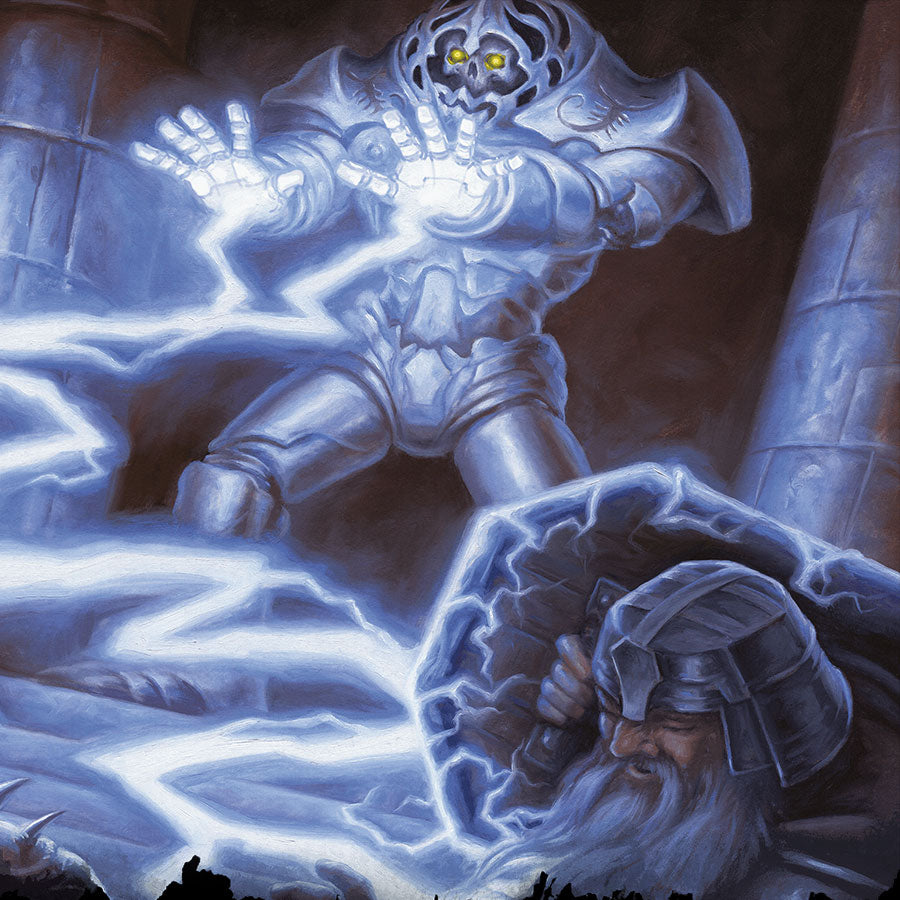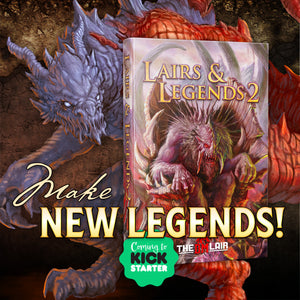10 Secrets for Better Roleplaying in Dungeons & Dragons

Written by Luke Hart
Social interactions are a cornerstone of Dungeons & Dragons, but they’re often misunderstood. Many people conflate them with roleplaying as a whole, and they can sometimes devolve into filler or unengaging monologues. When done right, however, social interactions can bring your world to life, immerse your players in the story, and create unforgettable moments. Let’s explore how to make these encounters purposeful, engaging, and dynamic.
Watch or listen to this article by clicking the video below.
#1 A social interaction should have a purpose
A social interaction in D&D is any time characters engage with NPCs—whether it’s a merchant, a traveler on the road, or even a monster trying to eat their faces off. While some people like to add flair with voices and accents, the real essence of a social interaction is the exchange of ideas, information, or emotions. These interactions need to have a purpose. They shouldn’t exist just to fill time or provide a platform for funny voices. Instead, they should serve a clear goal, such as revealing secrets, offering clues, or creating challenges. For instance, kobold slaves in a kitchen might provide critical information about an orc compound, or the ghost of a slain noble could reveal a villain’s weakness if treated with respect and compassion.
#2 Avoid prewritten word-for-word speeches
Another trap to avoid is turning interactions into monologues. A social interaction should feel like a conversation, not a one-sided speech. Players will quickly disengage if they’re forced to sit through five minutes of NPC rambling. Instead, aim for a back-and-forth dynamic. Let the players ask questions, probe for details, and steer the conversation. If you need to ensure certain information comes out, prepare a bullet list of critical points rather than a long speech. This keeps the conversation organic while ensuring you don’t miss anything important.
#3 Don’t monologue
One of the quickest ways to disengage your players during a social interaction is to turn it into a monologue. Whether it’s reading verbatim from a module’s boxed text or improvising an unending speech, monologues can grind the game’s momentum to a halt. While it’s important for NPCs to convey key information, it’s equally important to let the players participate. A social interaction should feel like a conversation, not a lecture. Aim for back-and-forth exchanges where the players can ask questions, make their own statements, and actively steer the dialogue. No one wants to sit passively while the dungeon master speaks uninterrupted for five minutes. Keep it interactive, and your players will stay engaged.
#4 Use bullet lists
To avoid the pitfalls of monologues or forgetting key points, consider using bullet lists to prepare for your social interactions. These lists allow you to keep track of what an NPC needs to convey without scripting their dialogue word-for-word. During the game, you can use these points as a flexible guide, weaving them into the conversation naturally as the players interact with the NPC.
This approach mirrors what we do in Lair Magazine. Our NPC roleplaying notes are written as simple bullet lists to help dungeon masters focus on roleplaying in the moment while ensuring they don’t overlook crucial information. While bullet lists might not have the narrative elegance of prose, they’re far more practical at the game table. Dungeon masters need tools that are easy to reference and enhance gameplay, not ones that bog them down. Using this technique not only keeps the interaction fluid but also makes your job as a DM easier, so you can spend more time enjoying the game with your players.
#5 Use NPC starting attitudes
The Dungeon Master’s Guide offers a useful framework for NPC attitudes: friendly, indifferent, and hostile. Friendly NPCs are eager to help, indifferent ones may require persuasion, and hostile NPCs oppose the party but won’t necessarily attack outright. Players can influence these attitudes through conversation, roleplay, and Charisma checks. If players align with an NPC’s ideals, bonds, or flaws, they might gain an edge, such as advantage on checks or automatic positive influence. This dynamic adds layers to interactions and rewards players for thoughtful engagement.
#6 Remember that conversation and Charisma checks are not all-powerful
It’s important to remember that not everything can be resolved with a Charisma check or clever argument. Some things are simply non-negotiable. A royal guard under strict orders isn’t going to let anyone into the king’s private chambers, no matter how high the Persuasion roll. NPCs should act like real people with their own goals, limits, and priorities, even if it occasionally frustrates the players.
#7 Use your voice and body language when roleplaying an NPC
To bring your NPCs to life, use distinct voices and body language. A demon might speak with a raspy snarl, while a frightened kobold cowers and stammers. Even small gestures, like hunching your shoulders for an old man or standing tall for a proud noble, can make NPCs more memorable. If you’re not comfortable with this at first, don’t worry—it gets easier with practice, and your players will appreciate the effort.
#8 Fail forward
Social interactions should always propel the game forward, even if the players fail. If they botch a conversation with kobold slaves, they might miss out on some useful details, but they shouldn’t be completely stuck. Always have alternative ways for the adventure to progress, whether it’s a partial clue or a backup source of information. Dead ends are frustrating for players and should be avoided.
#9 Use complications
Failure in social interactions can also lead to complications that make the game more interesting. If a player insults the king, they might spend the night in jail or have some of their assets seized. These moments create drama and tension, often becoming highlights of the campaign. However, it’s important to ensure these complications don’t derail the game entirely.
#10 Involve all your players
Finally, make sure all your players have a chance to participate in social interactions. Often, one or two players will dominate the scene, leaving quieter players on the sidelines. You can address this by having the NPC directly engage with the quieter characters, drawing them into the conversation with questions or comments. This ensures everyone feels included and contributes to the scene.
100 Years of GM Experience at Your Fingertips!
Are you a NEW GAME MASTER feeling a bit overwhelmed by everything involved with running a role-playing game? Are you a VETERAN GAME MASTER looking for new tips and tricks to take your games to the next level? Look no further than the Secret Art of Game Mastery.
We at the DM Lair have distilled our CENTURY of accumulated GM experience into an easy-to-read guide of practical advice that you can immediately apply to your games! We've even included our own templates–the things that we use to prepare our ACTUAL games.
Get all three books to master your game:
- The Secret Art of Game Mastery. Contains over 100 years of GM advice distilled into an easy-to-read format. It introduces and explains the tools of the trade, scheduling, playstyle, post-game notes, getting player feedback, and more.
- The Secret Art of Preparation. Brings to your fingertips the actual templates and guides that the DM Lair team uses to prepare games, Lair Magazine, and more. Designed as a three-ring binder, it's intended for you to write directly into for your entire campaign!
- The Secret Art of Notetaking. Gives you the keys to tracking your campaign from session to session just like the DM Lair team. Designed as a three-ring binder, it's intended for you to write in and keep track of your whole campaign!
With so much knowledge and experience on its pages, The Secret Art of Game Mastery is guaranteed to become an indispensable tool for all game masters, new and veteran alike. And if that isn’t enough, the information applies to all game systems and all genres!
-
Posted in
Game Master How-To Articles







